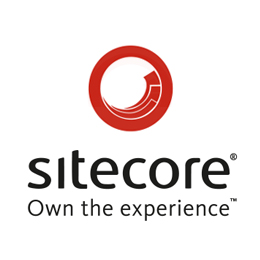
 Australians are enthusiastic supporters of digital engagement, with seven out of ten consumers acknowledging digital channels have had a positive influence on the way they interact with organisations. They cite digital benefits including time and place independence, faster time to outcome, and greater control over the experience but they also express wariness when it comes to security.
Australians are enthusiastic supporters of digital engagement, with seven out of ten consumers acknowledging digital channels have had a positive influence on the way they interact with organisations. They cite digital benefits including time and place independence, faster time to outcome, and greater control over the experience but they also express wariness when it comes to security.
Eight in ten consumers believe security issues can affect their online experience and more than half of consumers are concerned by data privacy factors such as the type of data being stored, where it is stored and how it is used. What may surprise IT and marketing departments is that both of these issues rate higher in importance to the consumer experience than a good user interface, extensive functionality, frequent updates or cross channel capabilities.
These are among the main findings of Digital Australia: Understanding the Customer Experience Road Trip, a study into digital marketing activity in the Australian market conducted by Tech Research Asia, co-sponsored by Sitecore and Microsoft.
The most commonly used digital channels are websites, followed by mobile apps and email. Consumers are twice as likely to use a website as any other channel. Mobile apps may be particularly popular when engaging with banks, social media, transport providers, retailers and media, but for most organisation types, email is more frequently used than mobile apps.
Established technologies also figure highly on the list of devices currently used by consumers for digital engagement. Seven in ten people rely on a laptop; six in ten use a smartphone, and just over half use their desktop computer. This is expected to change in the years ahead as the Internet of Things gains momentum. The study found that just under one in five people would like to use a smartwatch, a similar number expect to use a connected household appliance or a connected car, and one in ten plans to use virtual reality.
The nature of each engagement has a big impact on the kind of channel selected by the consumer. More than half of Australians prefer to engage digitally when making payments or conducting financial transactions, for research or data, general communications, managing a membership or subscription, or when managing personal data. Almost half prefer to shop via digital channels.
Apart from these transactions however, the majority of people still want the ability to pick and choose between digital and traditional channels. This has important implications for businesses developing digital strategies as any attempt to limit transaction types to specified channels is likely to be resisted and may be resented by consumers.
The primary reasons consumers choose to stick with traditional channels include a desire to deal with people, concern over the impersonal nature of digital engagement, or the lack of any compelling reason to change from existing service channels. This points to the importance of designing methods of digital engagement that improve on the existing experience, rather than simply replicating current practices.
Among those consumers who are using digital channels, unwanted advertising is by far the largest cause of frustration (cited by four times as many consumers as the next issue). Lack of security is the second most common frustration, while sharing third place is service that encroaches on privacy by tracking, and a poor user interface
Beyond mere frustration is the poor consumer experience. When outcomes do not match expectations, almost six in ten Australian consumers say they would need an incentive, to hear positive word of mouth or see enough positive online reviews to continue being a customer. Just over one in ten consumers would not engage with the company again.
Nicole Stirling, Marketing Director, Sitecore, “While businesses and consumers agree digital engagement is important and beneficial, at times there is a real disconnect in the expectations of these two groups. Consumers want choice and that means maintaining traditional channels as well as delivering new value-add digital services. Consumers are also looking for transparency, control of data, speed and security of service. However, the IT and marketing departments charged with building these channels all too often focus on designing bells and whistles. They need to understand that consumers don’t care about the tools. They just want fast, reliable outcomes.”
The report can be downloaded here:
http://www.sitecore.net/DigitalAustraliaInsights
About the research
“Digital Australia” Understanding the customer experience road trip” is the latest in a series of annual studies sponsored by Sitecore Australia, examining digital marketing activity in the Australian market. This year’s study was conducted by Tech Research Asia and co-sponsored by Microsoft. The research was carried out in August 2015 and involved a consumer online survey completed by 1002 respondents, as well as a business-focused survey which was completed by 611 IT and marketing leaders.
About Sitecore
Sitecore is the global leader in experience management software. The Sitecore® Experience Platform™ manages content, supplies contextual intelligence, and automates communications, at scale. It empowers marketers to deliver content in context of how customers have engaged with their brand, across every channel, in real time. This context marketing is the only way to manage meaningful customer experiences that delight audiences, build loyalty, and drive revenue. More than 4,400 of the world’s leading brands—including American Express, Carnival Cruise Lines, easyJet, and L’Oréal—trust Sitecore to help them deliver the personalised interactions that win loyal customers. For more information, visit www.sitecore.net.




